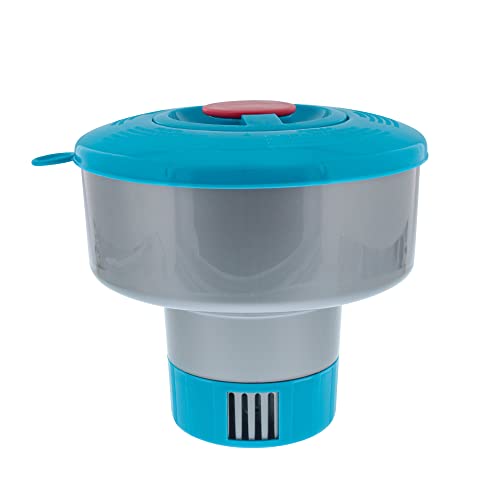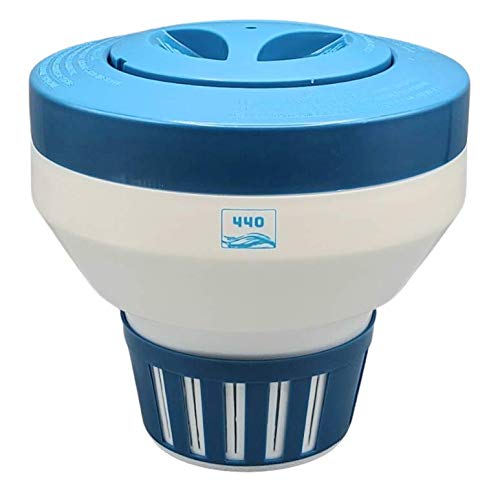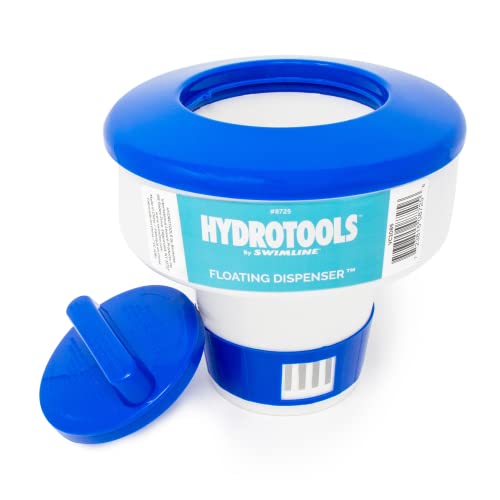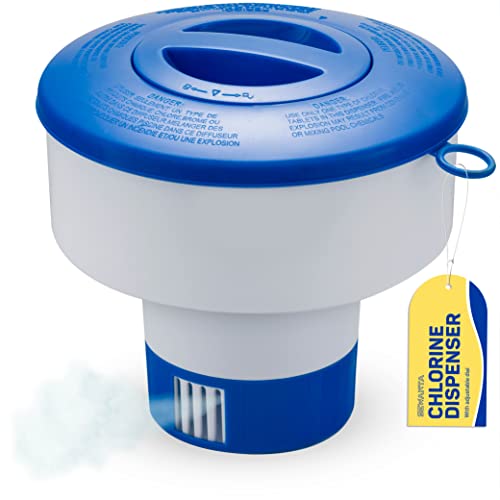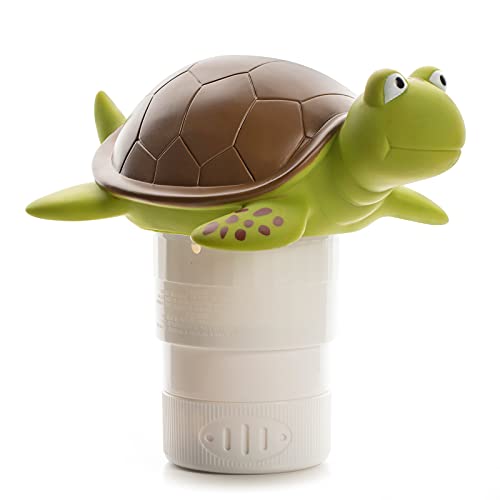Managing all the chemicals in your pool's maintenance routine can be a bit overwhelming. Worry not! Chlorine floaters distribute chlorine evenly throughout the pool, preventing the growth of harmful bacteria and algae while keeping the water's chemical balance in check.
After conducting a thorough analysis of the current market, our team curated a list of top picks, helping you find the best pool chlorine floater for your pool in less time and with less effort. Our review showcases the best products on the market, along with their pros, cons, and key features. Sitting at the top of our list due to its durable build and ease of use is the U.S. Pool Supply Chlorine Floater. Keep reading to learn more about our selections, and make sure you invest wisely with our buyer's guide.
Our Top Picks
- Selecting a Pool Chlorine Floater: A Buying Guide
- Pool Chlorine Floater FAQs
- How does a floating pool chlorinator work?
- How many chlorine tablets do I need to put in the floater?
- How often should I check the chlorine levels in my pool?
- Can I adjust the amount of chlorine being released by the floater?
- Can a chlorine pool floater damage my pool liner?
- What should I do if my chlorine dispenser isn't floating properly?
- Can I place bromine tablets in my floating chlorinator?
- Related Reviews
Selecting a Pool Chlorine Floater: A Buying Guide
Floating chlorine dispensers simplify pool maintenance by balancing the water’s chemicals and preventing the growth of harmful bacteria. With their buoyant nature, they drift around your swimming pool, delivering precise amounts of chlorine to maintain the perfect swimming environment. Before rushing to get yours, it’s wise to take a brief moment to evaluate some key aspects. In this buying guide, we break down each factor to consider to find the best pool chlorine floater for you.
Capacity
The capacity of a floating pool chlorinator plays a significant role in its effectiveness. You want a floater that accommodates a sufficient number of tablets to maintain the cleanliness of your pool without frequent refills. A larger floater that holds more tablets will disperse more chlorine, keeping your pool sanitized for longer periods. However, if your pool is smaller in size, you’ll need a smaller capacity to avoid over-chlorination. A general rule of thumb is to use one 3-inch tablet for every 5,000 gallons of water.
Adjustable Flow Rate
Make sure the chlorine dispensing unit has an adjustable flow rate, as this feature allows you to control the amount of chlorine released into the pool. Different pools require varying levels of chlorination depending on factors such as the number of swimmers, exposure to sunlight, and pool size. A floater with an adjustable flow rate caters to this variation, ensuring your pool receives the right amount of chlorine at all times.
Durability
A floater with a solid build will withstand the harsh pool environment and last longer. Look for durable materials like acrylonitrile butadiene styrene (ABS), polyvinyl chloride (PVC), polypropylene (PP), or polyurethane (PU). For the most robust protection against wear and tear, make sure it features double-reinforced construction. Additionally, read the product description to confirm that the materials are resistant to corrosion and won’t fade from UV exposure.
Ease of Use
A pool chlorine dispenser should simplify your pool maintenance routine, not complicate it. Look for a floater that opens easily for quick refills and adjustments. Additionally, it should float and navigate the pool effortlessly to ensure effective chlorination. Some floaters even come with handles for easy removal from the pool. The simpler the usage, the more time you save for actual swimming.
Aesthetic Appeal
While shopping for a pool chlorine dispenser, its “aesthetic appeal” is often overlooked. You may not even be aware that these floaters come in various designs and styles. Whether you prefer a vibrant unit that catches the eye or a more subtle, traditional blue that seamlessly blends with the water, there are options to suit every preference. You can also find character-themed designs, from friendly animals to cartoon characters.
Price and Value
Price is always a factor when making purchasing decisions. However, don’t let a cheap price tag fool you; it’s crucial to consider the value you’re getting. A cheap floater may seem attractive, but if it doesn’t last long or doesn’t effectively distribute chlorine, you may end up spending more in the long run. Find a balance between cost and quality by comparing similar options and reading customer reviews.
Brand Reputation
Finally, take the brand’s reputation into account when buying a pool chlorinator. A good reputation typically indicates high-quality products and excellent customer service. Check out reviews and ratings from other customers. This will give you a clear picture of what to expect and guide you in choosing the right floater.
Pool Chlorine Floater FAQs
How does a floating pool chlorinator work?
The floater slowly dissolves chlorine tablets as it moves around the pool, evenly dispersing the chlorine throughout the water.
How many chlorine tablets do I need to put in the floater?
A general rule of thumb is to use one 3-inch tablet for every 5,000 gallons of water. However, it's always best to refer to the instructions on the chlorine package.
How often should I check the chlorine levels in my pool?
It's a good practice to check the chlorine levels in your pool at least once a week.
Can I adjust the amount of chlorine being released by the floater?
Yes; most floating chlorine dispensers have adjustable vents that allow you to control the amount of chlorine that's being released.
Can a chlorine pool floater damage my pool liner?
If the floater is left in one spot for too long, the high concentration of chlorine can damage the pool liner. To avoid this, make sure the floater is moving freely around the pool.
What should I do if my chlorine dispenser isn't floating properly?
If your pool chlorine floater is not floating properly, try adjusting the balance or emptying and refilling it. If the problem persists, you may need to replace the floater.
Can I place bromine tablets in my floating chlorinator?
Some chlorine pool floaters also hold bromine tablets. Always check the manufacturer's label first to avoid damaging the floater.




